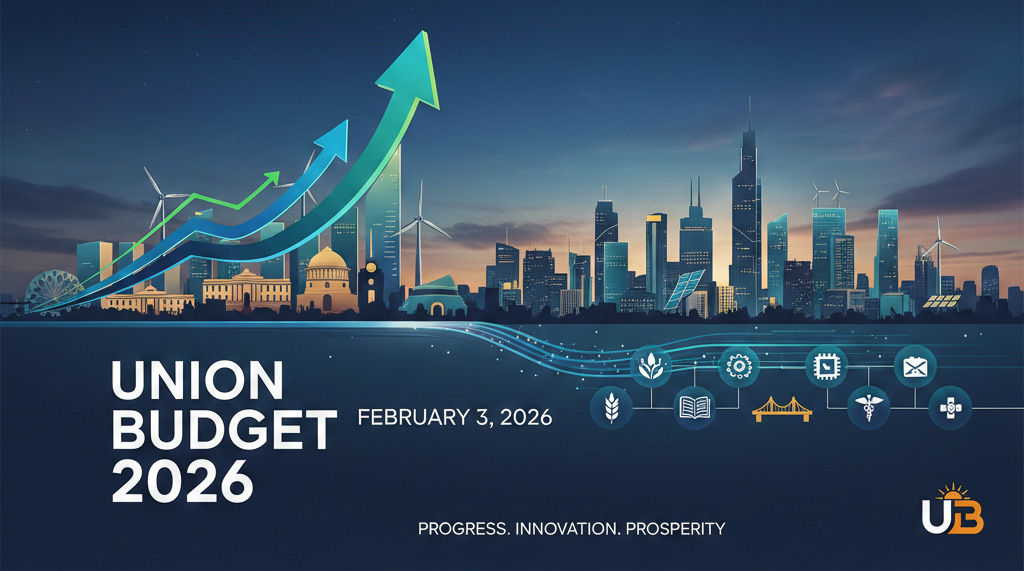HIGHLIGHTS OF UNION BUDGET 2026 RELATED TO NRIs & PROIs
- By Team of D. Saha& Co.
Simplifying NRI Property Deals: PAN Replaces TAN
• The Union Budget 2026 27 proposes a change to simplify property transactions when buying from Non Resident Indians (NRIs).
• From 1 October 2026, resident individuals and Hindu Undivided Families (HUFs) buying immovable property from an NRI will no longer need a TAN (Tax Deduction and Collection Account Number) for deducting tax at source (TDS).
• Instead, buyers can use their PAN (Permanent Account Number) to report and deposit TDS, just as in regular property purchases between Indian residents.
• This move is expected to ease compliance and reduce the administrative burden for buyers in NRI property deals.

Lower TCS Eases Overseas Education and Medical Payments
• The Union Budget 2026 27, presented by the Finance Minister, proposes reducing the Tax Collected at Source (TCS) on certain foreign remittances to ease upfront tax outgo.
• Under the Liberalised Remittance Scheme (LRS), the TCS rate for self funded education and medical expenses abroad is being lowered from 5% to 2%.
• The Budget also cuts TCS on overseas tour packages to a flat 2%, replacing the previous structure of 5% for amounts up to ₹10 lakh and 20% beyond that.
• These changes are intended to reduce the upfront cash burden for families funding education, healthcare, or travel abroad, and are expected to boost outbound tourism and ease foreign spending.
• However, the TCS rate of 20% still continues for other types of foreign remittances not covered by these categories.
Budget 2026 Offers Relief on Undisclosed Foreign Holdings
• The Union Budget 2026–27 introduces a new amnesty scheme called the Foreign Assets of Small Taxpayers – Disclosure Scheme, 2026 (FAST DS 2026) to help taxpayers who unintentionally failed to disclose their overseas income or assets.
• Under this scheme, resident taxpayers get a limited, time bound window to declare undisclosed foreign income and assets and avoid harsh penalties or prosecution under the Black Money (Undisclosed Foreign Income and Assets) and Imposition of Tax Act, 2015.
• Category A taxpayers (those who never disclosed overseas income/assets) with total undisclosed value up to ₹1 crore can regularise by paying 30% tax + 30% levy in lieu of penalty, and in return get immunity from prosecution.
• Category B taxpayers (who disclosed income or paid due tax but omitted to declare the asset) can get immunity from penalty and prosecution by paying a flat fee of INR 1 lakh, provided the asset value doesn’t exceed INR 5 crore.
• The government has also eased prosecution norms under the Black Money law for minor non disclosures: individuals with foreign assets (other than immovable property) worth up to ₹20 lakh will no longer face criminal action, retrospectively from 1 October 2024.
PROIs will henceforth have a wider room for investment
• Person Resident Outside India (PROIs) as per FEMA will be able to invest more in India on an individual basis from 5% to 10% and from 10% to 24% in equity instruments of listed Indian companies through NRE PIS Demat A/c with designated banks instead of FDI or FPI in any Indian company subject to Sectoral Caps or Investment Limits as per FEMA.
Disclaimer:- (You are advised to consult your Legal Counsel before taking any decisions. This is issued only for the purpose of public awareness and information. The Contributor or any of his employees/associates will not take any responsibility for any actions of the reader based directly or indirectly on the basis of the above Article.)
Please share your valuable suggestions/opinions/feedback.
Our e-mail id : info@kolkatataxconsultants.in
Contact nos. : 8420159817 / 9674797985
View Previous Budgets
© D. Saha & Co. All Rights Reserved | Powered By 



